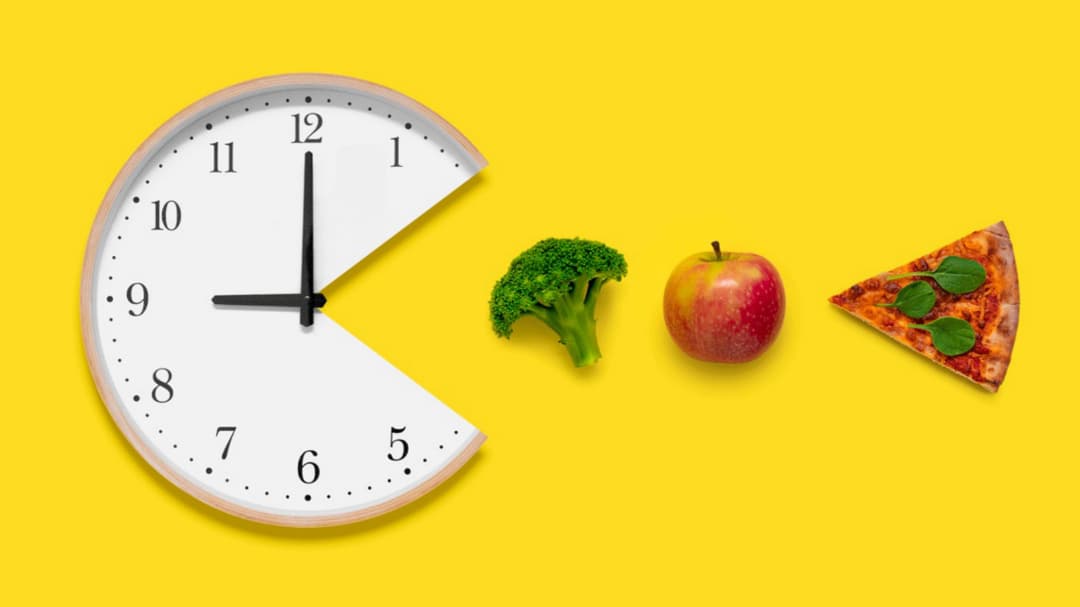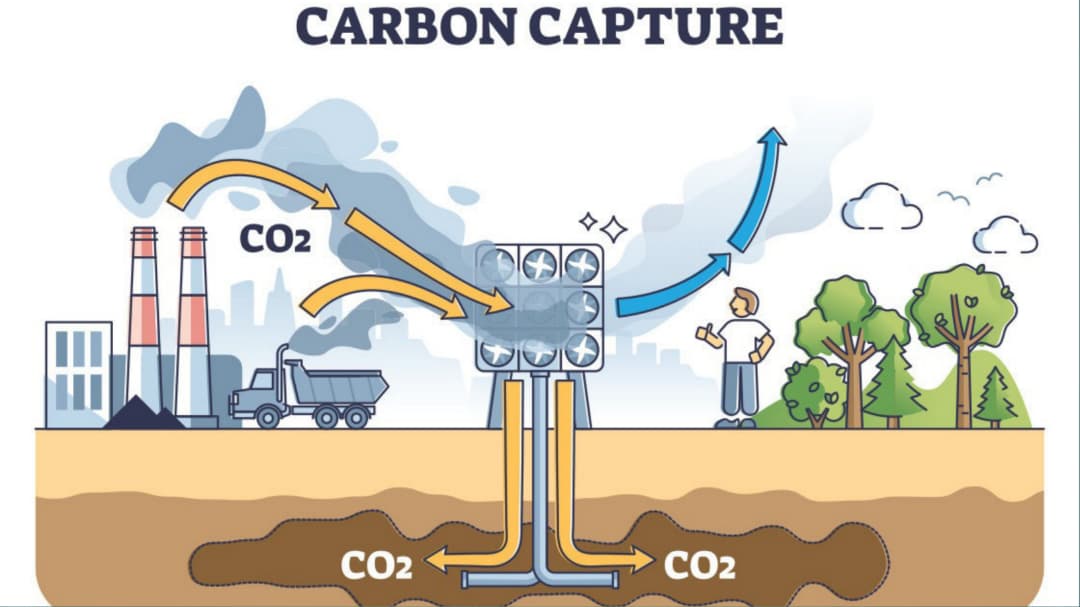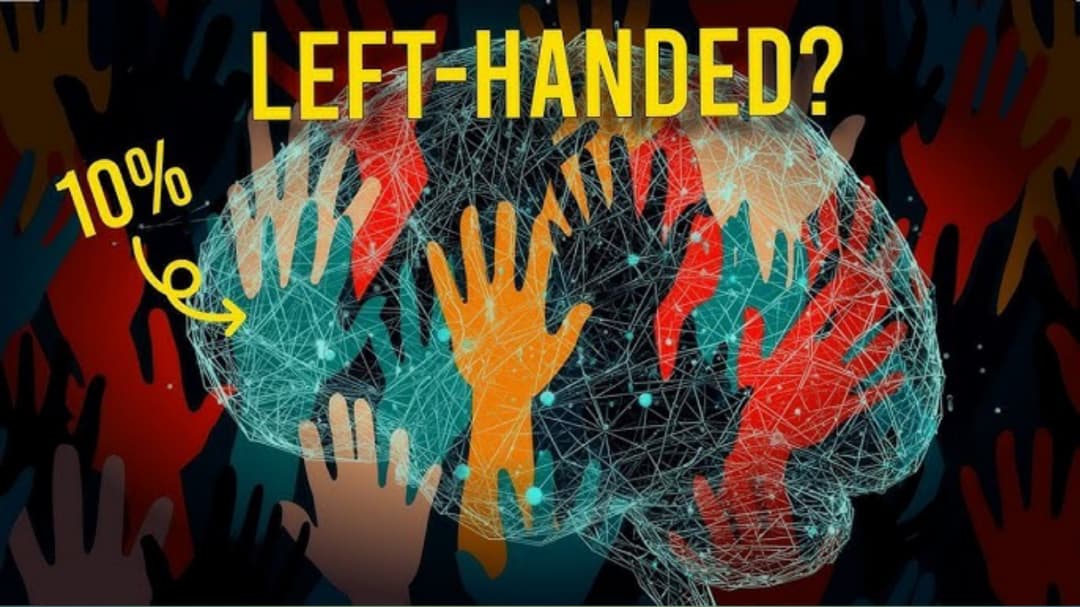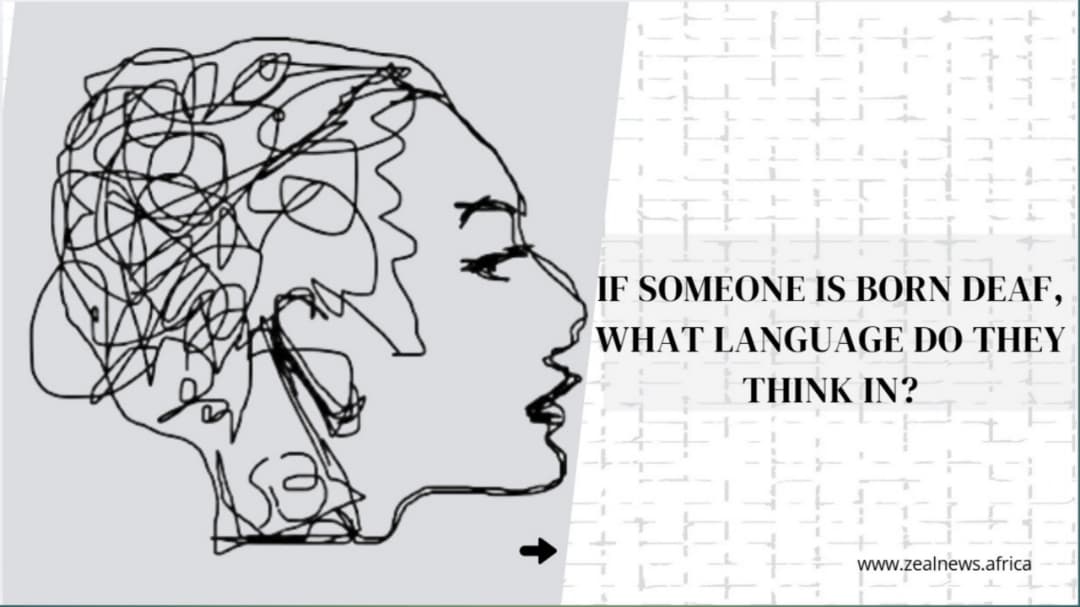The Panic of Growing Older — And the Calm That Follows
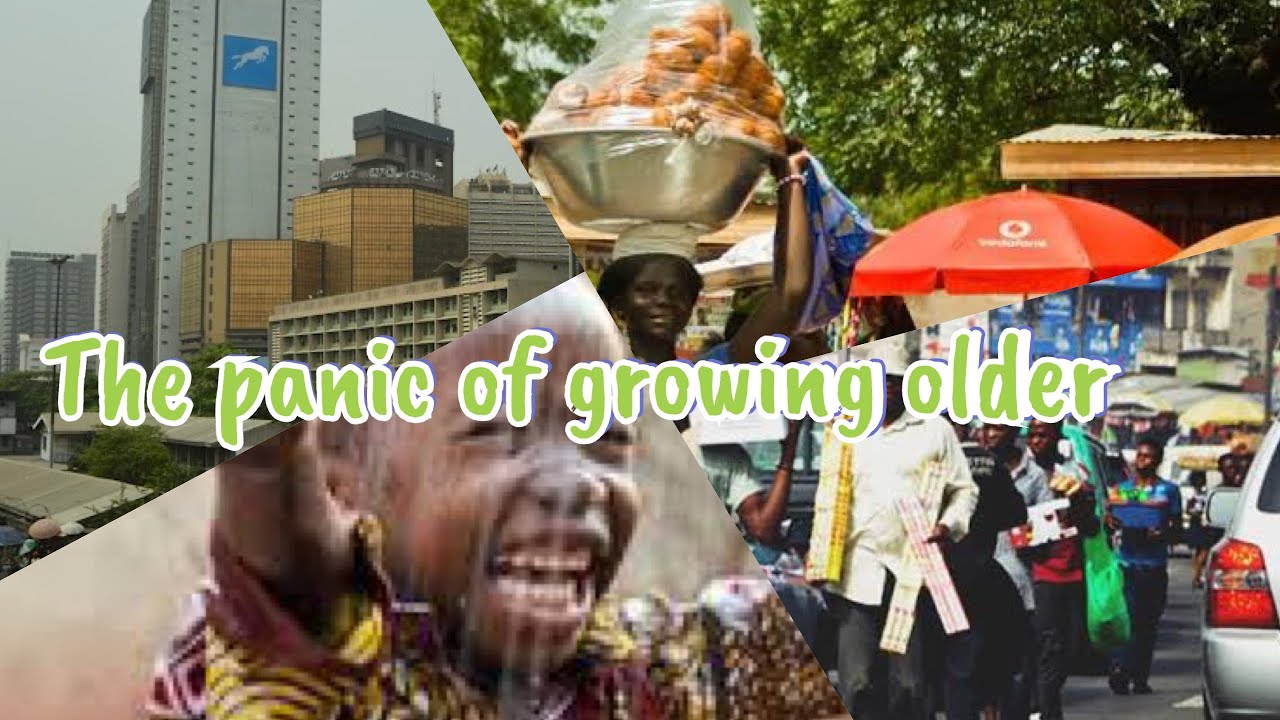
Generations after generations, people have wrestled with a subtle but familiar tension: the uneasy sense that time may be moving faster than their lives can keep up. It’s a feeling that tends to surface in ordinary moments, at the sight of a new wrinkle, at the realisation that a younger relative has somehow outrun childhood. Lenrie Peters captured this restlessness in his poem “The Panic of Growing Older,” a piece that speaks to the universal fear of unfulfilled dreams and the quiet pressure that accompanies the passing of time. His reflections, written decades ago, still feel startlingly relevant in a world where comparison is constant and expectations seem to grow heavier with each advancing year. The poem’s lingering question ‘‘Are we becoming the people we hoped to be?” mirrors a modern discomfort that many experience but rarely articulate. It is often at this threshold of self-awareness, somewhere between unease and recognition, that the contemporary panic of aging begins to take shape.
The Panic of Growing Older
There comes a moment sometimes in a noisy room, sometimes in the stillness of an evening when age suddenly becomes visible. It may be triggered by a stray birthday message, a familiar ache in the knees, or the subtle realisation that younger colleagues speak about the future with a confidence you once had. The first response, for most people, is panic. Not loud or dramatic, but a tightening in the chest, a private acknowledgment that time is no longer the invisible companion it once was.
In early adulthood, aging feels abstract. Something meant for other people. But as responsibilities accumulate and ambitions reveal their true weight, the idea of aging shifts from distant concept to personal reality. Small decisions start to feel like turning points. Missed opportunities echo a little louder. And suddenly, the future feels less like an open field and more like a narrowing path.
This panic often becomes sharper because of modern digital culture. Platforms likeInstagram andLinkedIn place curated success, filtered youth, and accelerated achievement at the center of daily life. You scroll through polished milestones and begin measuring your own pace against timelines that were never meant to be compared. Even people who feel grounded can find themselves asking quiet questions:Am I falling behind? Did I wait too long?
But beneath the anxiety lies its true root, a confrontation with expectation. The life we imagined. The dreams we postponed. The fear that time may not grant the second chances we hoped for.
The Quiet Fear Beneath the Surface
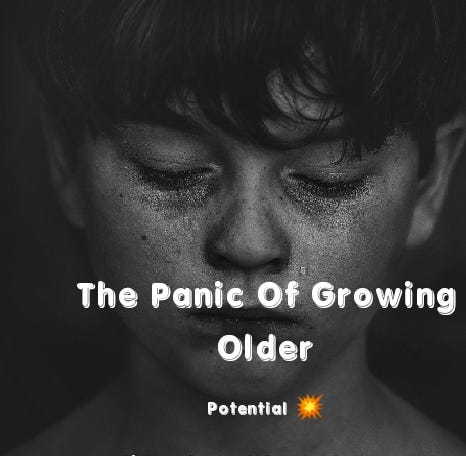
Source: Google
When people say they fear aging, they often mean something deeper. The fear of weakened strength, the fear of fading relevance, the fear of becoming an afterthought in a world that exalts youth. Western culture, in particular, has built an entire economy around staying young, leaving many with the impression that aging is a personal failure rather than a natural progression.
Yet relevance has never been about age. It has always rested on perspective, contribution, and the ability to understand life with a depth that only experience can carve out.
This understanding grows slowly. It’s shaped by conversations with older relatives, by observing people rebuild after setbacks, by watching others live with a grace that younger versions of us couldn’t fathom. The panic doesn’t disappear at once, but something begins to shift—an early form of acceptance, though you may not recognise it at the time.
The Turning Point We Rarely Recognise
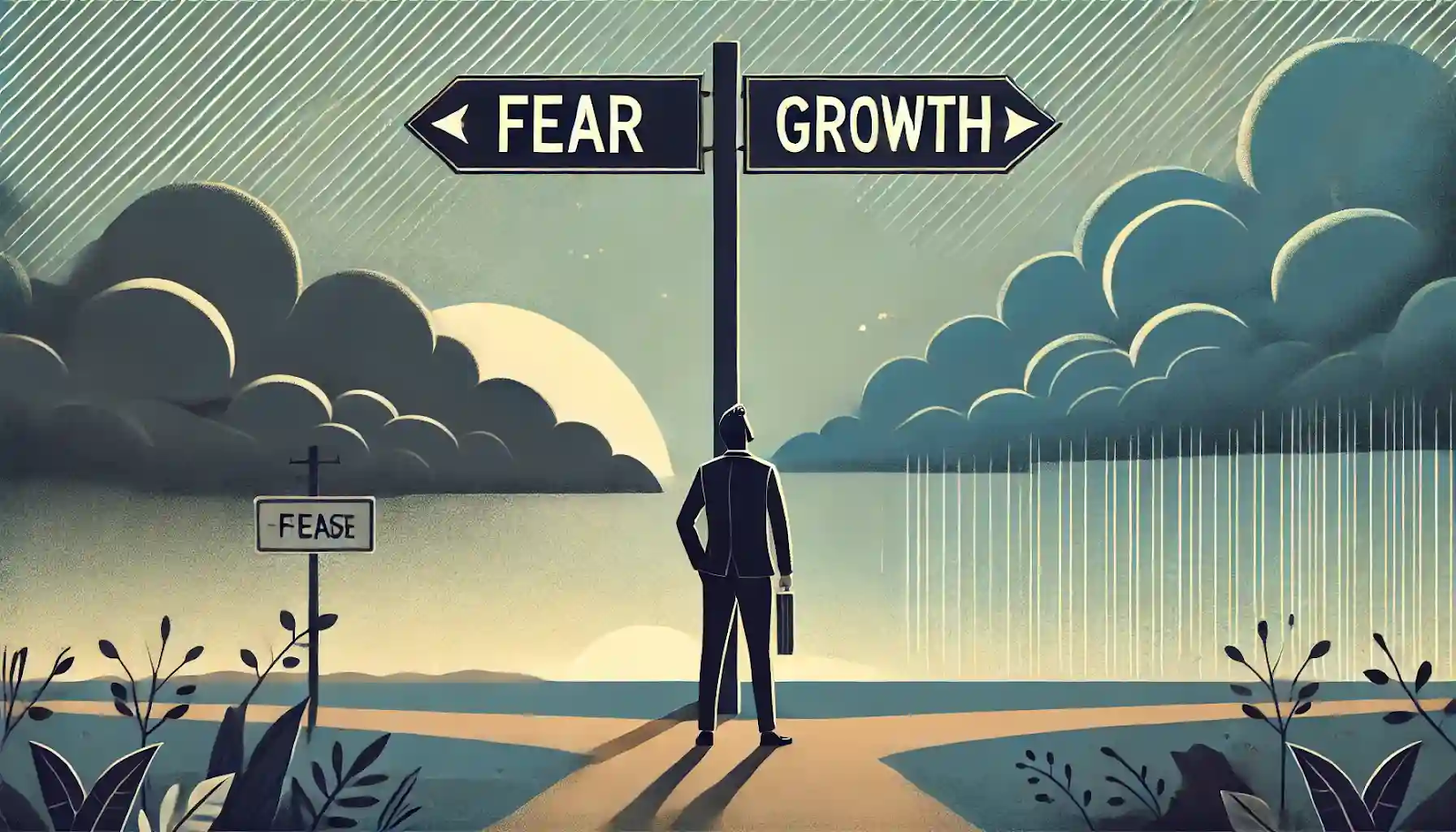
There is always a turning point, although it seldom appears dramatic. It might come during a difficult season that forces you to rethink your priorities. It might show up in moments of reflection after a personal loss or a deeply honest conversation. Or it might simply unfold as perspective, piece by piece.
At this stage, urgency begins to lose its sharpness. You stop racing against imaginary timelines. You begin understanding that ambition and patience are not opposites, they coexist. You realise that mistakes didn’t ruin you; they shaped you. Life starts to feel less like something slipping away and more like something quietly adding layers.
Social Insight
Navigate the Rhythms of African Communities
Bold Conversations. Real Impact. True Narratives.
This shift marks the beginning of the calm.
The calm doesn’t declare itself. It settles in gradually, like dusk creeping across a room.
You begin to:
measure your life by meaning instead of milestones
detach from comparisons that once felt suffocating
choose presence over performance
value relationships that feel steady rather than impressive
understand yourself with a level of mercy you once denied
This is not resignation. It is maturity.
Interestingly, research compiled byHarvard Health Publishing suggests that emotional well-being often improves with age. People become more intentional. They waste less time on conflict. Their priorities become clearer. The noise that once felt overwhelming becomes easier to filter.
This is the unexpected gift of aging: the softening of pressure and the widening of perspective.
What We Gain As the Years Move Forward
So much of the conversation around aging centers on what it takes away. But aging gives us far more than it steals.
It gives clarity, the ability to see through distraction.
It gives gratitude, as you recognise the fragile beauty of ordinary days.
It gives courage, born not from fearlessness but from survival.
It gives boundaries, shaped by an understanding of your worth.
It gives grace, the most underrated of all human capacities.
Growing older teaches you that life is not measured by how loudly you move, but by how deeply you understand it.
While aging is inevitable, the way we interpret it is a choice. We can run from it or we can grow with it. We can view it as a decline or a deepening. We can chase youth or honour the person we are becoming.
Social Insight
Navigate the Rhythms of African Communities
Bold Conversations. Real Impact. True Narratives.
The healthiest perspective comes when we stop treating time as a threat and start seeing it as a companion. A witness. A sculptor. Each year adds context. Each chapter makes the next one richer.
Time is not the enemy.
Fear is.
And once fear loses its authority, the story changes.
In the End
The panic of growing older may start as a quiet storm, but the calm that follows often feels like steady weather, predictable, grounding, and strangely comforting. Aging reveals the kind of wisdom youth was too hurried to notice: that life is not a race, and meaning is not bound to a schedule.
In our early years, we fear aging.
In our middle years, we negotiate with it.
In our later years, we understand it.
Fear is natural.
The calm is earned.
And the journey between the two is what shapes us.
You may also like...
If Gender Is a Social Construct, Who Built It And Why Are We Still Living Inside It?

If gender is a social construct, who built it—and why does it still shape our lives? This deep dive explores power, colo...
Be Honest: Are You Actually Funny or Just Loud? Find Your Humour Type

Are you actually funny or just loud? Discover your humour type—from sarcastic to accidental comedian—and learn how your ...
Ndidi's Besiktas Revelation: Why He Chose Turkey Over Man Utd Dreams

Super Eagles midfielder Wilfred Ndidi explained his decision to join Besiktas, citing the club's appealing project, stro...
Tom Hardy Returns! Venom Roars Back to the Big Screen in New Movie!

Two years after its last cinematic outing, Venom is set to return in an animated feature film from Sony Pictures Animati...
Marvel Shakes Up Spider-Verse with Nicolas Cage's Groundbreaking New Series!

Nicolas Cage is set to star as Ben Reilly in the upcoming live-action 'Spider-Noir' series on Prime Video, moving beyond...
Bad Bunny's 'DtMF' Dominates Hot 100 with Chart-Topping Power!

A recent 'Ask Billboard' mailbag delves into Hot 100 chart specifics, featuring Bad Bunny's "DtMF" and Ella Langley's "C...
Shakira Stuns Mexico City with Massive Free Concert Announcement!

Shakira is set to conclude her historic Mexican tour trek with a free concert at Mexico City's iconic Zócalo on March 1,...
Glen Powell Reveals His Unexpected Favorite Christopher Nolan Film

A24's dark comedy "How to Make a Killing" is hitting theaters, starring Glen Powell, Topher Grace, and Jessica Henwick. ...

